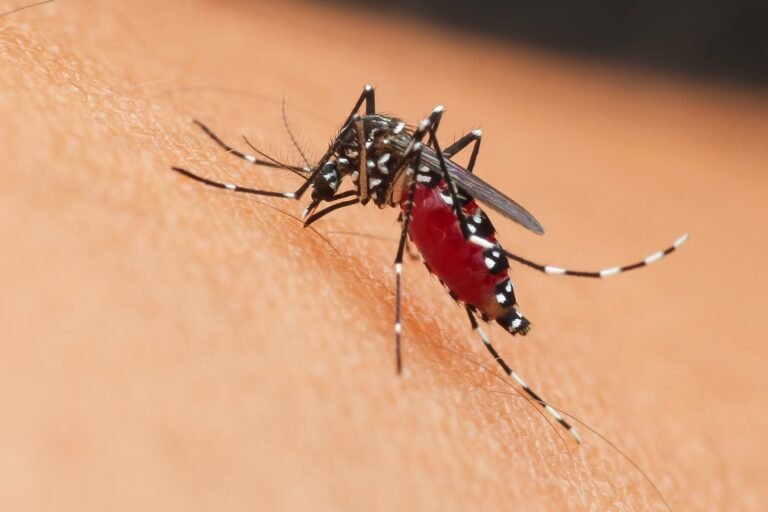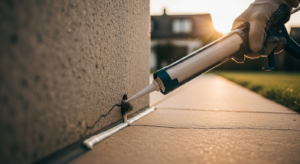Mosquitoes are not just a nuisance but a significant health risk that can affect both home and garden environments. They transmit diseases such as malaria, dengue fever, Zika virus, and West Nile virus. Effective mosquitocontrol is essential for protecting families, pets, and the community. This guide outlines proven prevention tips, natural methods, repellent sprays, traps, DIY recipes, and eco-friendly services. By understanding the mosquito life cycle, assessing potential breeding grounds, and using a mix of environmentally friendly and modern chemical solutions, homeowners can reduce mosquito populations while preserving pollinators and minimizing adverse ecological effects.
What Are the Most Effective Mosquito Prevention Tips for Home and Garden?
Mosquito prevention starts with eliminating breeding sites. Regularly inspect outdoor areas to remove stagnant water from clogged gutters, uncovered birdbaths, puddles, and pet dishes. Maintain your landscape by trimming tall grasses and bushes to eliminate mosquito resting spots. Install proper drainage systems in watering-prone areas and use larvicidal treatments when necessary. These steps help prevent mosquitoes from reproducing, reducing their overall population.
How Can You Eliminate Mosquito Breeding Grounds Around Your Property?
Identify and remove stagnant water sources on your property. Clean gutters to prevent water build-up and ensure trash cans, flower pots, and similar items do not collect water. Regularly empty birdbaths, pet dishes, and plant saucers. Fix leaking outdoor faucets and modify decorative fountains by using sand or gravel to avoid water retention. Periodically inspect areas, especially during rainy seasons, to keep potential breeding sites from supporting mosquito larvae.
Which Landscaping Practices Help Reduce Mosquito Populations?
Effective landscape management is key. A trimmed lawn, removal of tall vegetation, and clearing of debris reduce hiding spots for mosquitoes. Incorporate native, water-absorbent plants to improve waterdrainage and limit standing water. Using mulch or gravel can help reduce soil moisture levels. Additionally, increasing sunlight exposure in your garden makes the environment less favorable for these pests.
What Are the Best Times and Places to Avoid Mosquito Bites?
Mosquitoes are most active at dawn and dusk. Outdoor activities during these times have a higher risk of bites. Shaded, damp areas and secluded garden corners offer resting spots for mosquitoes. To lessen exposure, avoid these areas or shield yourself with repellents and protective clothing. Outdoor fans and strategic lighting can also deter mosquitoes during peak activity hours.
Effective Mosquito Prevention Tips for Home and Garden
Natural mosquitocontrol methods use eco-friendly substances and biological agents to lower mosquito numbers without causing environmental harm. Plant-based repellents and essential oils disturb mosquitoes’ sense of smell, hindering their ability to find hosts. Biological larvicides such as Bacillus thuringiensis israelensis (Bti) target only mosquito larvae while leaving beneficial insects intact. Combined with strategic planting of repellent vegetation, these methods provide a sustainable alternative to chemical insecticides while addressing issues like pathogen transmission and pollinator safety.
What Are the Top Natural Mosquito Repellents and Their Ingredients?
Key natural repellents include citronella, eucalyptus, lavender, and lemongrass oil. Citronella oil, derived from lemongrass, masks the carbon dioxide emissions that attract mosquitoes. Lemon eucalyptus has proven efficacy and is endorsed by health agencies, while lavender and tea tree oils create a calming fragrance and deter mosquitoes simultaneously. When properly concentrated (typically 30–40% essential oils), these ingredients offer several hours of protection and are favored by those seeking environmentally friendly alternatives without synthetic chemicals.
How Can Plants and Essential Oils Help Repel Mosquitoes?
Certain plants, such as marigolds, basil, peppermint, and rosemary, emit natural chemicals that repel mosquitoes by masking human scents like carbon dioxide. When these plants are integrated into the landscape, or their essential oils are used in sprays and diffusers, the continuous aroma serves as a barrier against mosquitoes. This method is both decorative and functional, providing a chemical-free approach that is safe for children, pets, and beneficial insects.
Are Natural Mosquito Control Methods Safe for Families and Pets?
Natural methods are generally safe when used as directed. Essential oils and botanical extracts, when diluted, minimize risks of skin irritation and allergic reactions—though a patch test is recommended for sensitive individuals. Using biocontrol agents like Bti specifically targets mosquito larvae and leaves non-target species, such as fish and pollinators, unharmed. This safety profile makes natural control methods attractive to families and communities looking to reduce exposure to pathogens and synthetic chemicals.
Which Mosquito Repellent Sprays Provide the Best Protection?
Mosquito repellent sprays come in two main types: chemical-based and natural. Chemical repellents (using DEET, picaridin, or IR3535) offer extended protection and are recommended by health authorities. Natural repellents, relying on essential oils like citronella, lemon eucalyptus, and lavender, are preferred by those who prioritize skin sensitivity and environmental sustainability. The choice depends on personal health considerations, desired duration of protection, and environmental impact.
What Are the Differences Between Chemical and Natural Mosquito Repellent Sprays?
Chemical repellents, particularly those with DEET, are known for their long-lasting efficacy but may risk skin irritation and environmental contamination. Natural sprays, although needing more frequent application due to their volatile nature, are gentler on the skin and the ecosystem. Users should weigh the benefits of long-lasting chemical protection against the eco-friendly and safer profile of natural alternatives when deciding which product best suits their needs.
How to Choose the Right Mosquito Repellent Spray for Your Needs?
When choosing a repellent spray, consider the formulation (chemical versus natural), duration of protection, ease of application, and compatibility with your skin. Those spending extensive time in mosquito-heavy areas may need stronger chemical options like DEET or picaridin, while individuals with sensitive skin or those seeking to reduce chemical exposure might opt for natural formulations. Reviews, testing results, and recommendations from organizations such as the American Academy of Pediatrics can assist in making an informed decision.
How Often Should You Apply Mosquito Repellent Spray for Maximum Effect?
Application frequency depends on the spray’s formulation and mosquito activity. Chemical repellents may offer protection for several hours but should generally be reapplied every 2–4 hours. Natural sprays usually need reapplication every 1–2 hours due to quicker evaporation. Environmental factors like sweating and humidity can further reduce effectiveness, so it is important to follow product instructions and adjust usage as necessary.
What Are the Best Mosquito Traps for Home Use and How Do They Work?
Mosquito traps work by attracting, capturing, and killing adultmosquitoes before they can breed or bite. The most effective devices combine attractants such as carbon dioxide, heat, and light to mimic human presence. Available in propane-powered, electric, and solar-powered models, these traps are designed for both indoor and outdoor use. Their strategic placement and regular maintenance augment other control measures to effectively reduce mosquito populations.
How Do Different Types of Mosquito Traps Capture and Kill Mosquitoes?
Different traps work in various ways. Some emit carbon dioxide and use chemical lures to mimic human breath, drawing mosquitoes into a fan-created vacuum chamber. Others feature sticky surfaces or employ heat and light to immobilize the insects. Certain models use a combination of water and an electric grid to kill mosquitoes on contact. Regardless of design, the aim is the same—interrupt the mosquito breeding cycle by reducing the number of biting adults.
Which Mosquito Traps Are Most Effective for Indoor vs. Outdoor Use?
Indoor traps are typically compact and quiet, designed to function effectively in confined spaces where attractants can accumulate. Outdoor traps, however, must cover larger areas and withstand variable weather conditions. Solar-powered traps with battery backups are popular choices for patios, gardens, and backyards. Selecting a trap should be based on the treatment area size, mosquito activity, and whether the device can operate efficiently in local outdoor conditions. Regular cleaning ensures these devices continue to operate at peak performance.
How to Maintain and Clean Mosquito Traps for Optimal Performance?
For optimal performance, mosquito traps require regular maintenance. This includes emptying captured mosquitoes, cleaning internal components to remove debris, and replacing attractants as needed. Depending on usage, this maintenance may be weekly or biweekly. Adhering to manufacturer instructions prevents buildup that could reduce airflow or attractants, ensuring the trap remains effective over time.
How Can You Make a DIY Mosquito Repellent at Home?
DIY mosquito repellents provide a customizable, cost-effective solution using readily available ingredients. By combining essential oils with a carrier such as coconut oil or distilled water, you can create a repellent that suits your skin type and scent preference while avoiding synthetic chemicals. Homemade repellents disrupt the olfactory cues that attract mosquitoes, offering an environmentally friendly option for daily use.
What Are the Most Effective Ingredients for Homemade Mosquito Repellents?
The most popular ingredients for DIY repellents include citronella oil, lemon eucalyptus oil, lavender oil, and tea tree oil. Citronella helps mask the odors that attract mosquitoes, while lemon eucalyptus offers protection comparable to some chemical repellents when used at the right concentration. Lavender adds a calming scent and repellent properties, and tea tree oil provides antibacterial benefits. A typical recipe may involve mixing 10–20 drops of essential oil per ounce of carrier fluid.
How to Prepare and Store DIY Mosquito Repellent Sprays Safely?
To make your repellent, mix essential oils with a carrier oil or distilled water in a clean spray bottle and shake thoroughly. Store the mixture in a cool, dark place away from direct sunlight to preserve the potency of the oils. Always perform a patch test to check for allergic reactions before wide application, label the bottle clearly, and keep it out of reach of children. Reapply every couple of hours during periods of high mosquito activity.
What Are the Limitations and Benefits of DIY Mosquito Repellents?
DIY repellents are favored for their natural, non-toxic ingredients and low cost, allowing for personalized formulations. However, they typically offer shorter protection durations, requiring more frequent application. Their efficacy can also vary depending on the concentration and quality of the essential oils used. For households in high-risk areas, these repellents may serve as a supplementary option alongside commercial products.
Why Choose Eco-Friendly Mosquito Control Services and Products?
Eco-friendly mosquitocontrol options minimize environmental impact while protecting human health and beneficial species. These methods use integrated pest management strategies that incorporate biological agents, botanical repellents, and mechanical traps instead of harsh chemicals. Green mosquitocontrol services offer customized treatment plans to manage breeding sites effectively and reduce the risk of resistance developing in mosquito populations.
How Do Eco-Friendly Mosquito Control Methods Protect the Environment?
Eco-friendly methods use biological agents like Bti and natural predators such as mosquitofish to target mosquito larvae without harming other wildlife. By reducing reliance on chemical pesticides, these methods protect water quality, soil integrity, and beneficial pollinators. This approach not only minimizes environmental contamination but also supports a balanced ecosystem, even in areas affected by climate change and urban flooding.
What Guarantees and Customized Solutions Do Professional Services Offer?
Professional mosquitocontrol services provide customized solutions after assessing the specific needs of your property. They use science-backed methods and offer scheduled treatments, eco-friendly pesticide applications, and installation of effective traps and barriers. These services typically include satisfaction guarantees and follow-up inspections to ensure long-term reduction in mosquito activity, addressing concerns from the American Mosquito Control Association and similar bodies.
How to Identify Trusted Mosquito Control Providers With Eco-Friendly Practices?
When selecting a mosquitocontrol provider, research certifications, customer testimonials, and the active ingredients used. Trusted providers are transparent about their methods, offer detailed information on their eco-friendly products, and have credentials from reputable pest control associations. Reviews and recommendations from local communities and organizations such as the Centers for Disease Control and Prevention can help verify their commitment to environmentally sustainable practices.
What Are the Health Risks of Mosquitoes and How Does Control Help?
Mosquitoes are vectors for many diseases, including malaria, dengue fever, West Nile virus, and Zika virus. These infections can have severe health effects, particularly for vulnerable groups like young children, the elderly, and individuals with compromised immune systems. Controlling mosquito populations through a combination of physical, chemical, and natural methods reduces the number of bites and the chance of disease transmission, thereby protecting public health.
Which Diseases Are Commonly Transmitted by Mosquitoes?
Common diseases spread by mosquitoes include malaria, dengue fever, Zika virus, and West Nile virus. They can also transmit chikungunya, yellow fever, and eastern equine encephalitis. The severity and variety of these diseases highlight the importance of robust mosquitocontrol measures at both local and global scales.
How Does Effective Mosquito Control Reduce Disease Transmission?
By reducing mosquito numbers through targeted control methods, the likelihood of contact between mosquitoes and humans decreases. Interrupting the breeding cycle prevents the buildup of disease-carrying populations, while barriers such as repellent sprays help protect high-risk areas during peak biting times. This integrated approach minimizes pathogen transmission and safeguards community health.
What Precautions Should Vulnerable Groups Take Against Mosquito Bites?
Infants, pregnant women, the elderly, and immunocompromised individuals should take extra precautions. Recommended measures include wearing long-sleeved clothing, using high-SPF and EPA-approved insect repellents, installing window screens, and seeking professional mosquitocontrol services to manage infestations around the home.
Table: Comparison of Mosquito Repellent Sprays
Before considering repellent sprays, review this table comparing key features of chemical versus natural options.
| Repellent Type | Active Ingredients | Protection Duration | Skin Sensitivity Risk | Environmental Impact |
|---|---|---|---|---|
| Chemical Repellent | DEET, Picaridin, IR3535 | 4–8 hours | Moderate | Potential environmental toxicity |
| Natural Repellent | Citronella, Lemon Eucalyptus, Lavender | 2–4 hours | Low | Eco-friendly, biodegradable |
This overview helps in deciding between the longer-lasting chemical sprays and the safer, eco-friendly natural options.
Effective Mosquito Prevention Tips for Home and Garden
In summary, natural mosquitocontrol harnesses biological agents and plant-based repellents to disrupt mosquito life cycles. The use of Bti, natural predators, and botanical extracts are effective strategies that lower mosquito numbers while preserving the health of the ecosystem. These methods are particularly valued for their environmental friendliness and reduced risk of chemical resistance.
Frequently Asked Questions
Q: What are the main causes of mosquito infestations around homes? A: Infestations mainly result from standing water in gutters, birdbaths, plant saucers, or clogged drains. Any area that allows water to collect creates breeding grounds for mosquitoes.
Q: How effective are DIY mosquito repellent sprays compared to commercial products? A: DIY repellents made with essential oils like citronella and lemon eucalyptus offer a natural alternative but may require more frequent reapplication and can vary in effectiveness based on ingredient concentration.
Q: Can eco-friendly mosquito control methods completely eliminate mosquito populations? A: While they substantially reduce populations, completely eliminating mosquitoes is challenging. An integrated approach combining natural repellents, biological controls, and environmental management is most effective.
Q: How do professional mosquito control services differ from DIY methods? A: Professionals conduct detailed assessments, apply targeted treatments, and use integrated pest management strategies for longer-lasting results. They also offer follow-up inspections to ensure continued effectiveness.
Q: What precautions should be taken when using chemical mosquito repellents? A: Always follow label instructions, conduct patch tests for skin sensitivity, use in well-ventilated areas, and reapply as needed to avoid overexposure and irritation.
Q: Are there any specific plant types known to repel mosquitoes? A: Yes, plants like citronella, marigolds, basil, rosemary, and lavender repel mosquitoes by emitting natural aromatic oils that mask human scents.
Q: What steps can be taken to protect vulnerable groups from mosquito-borne diseases? A: Vulnerable individuals should wear protective clothing, use high-SPF repellents, ensure homes have window screens, and consider professional control measures to limit exposure.
Final Thoughts
Effective mosquitocontrol reduces both biting nuisance and the spread of dangerous diseases. By eliminating breeding sites, using a mix of chemical and natural repellent sprays, and incorporating eco-friendly traps and controls, communities can significantly lower mosquito populations. Homeowners are encouraged to adopt sustainable, evidence-based methods tailored to their unique settings. Combining these strategies not only protects human health but also supports a balanced environment, keeping disease vectors in check while preserving beneficial species.




